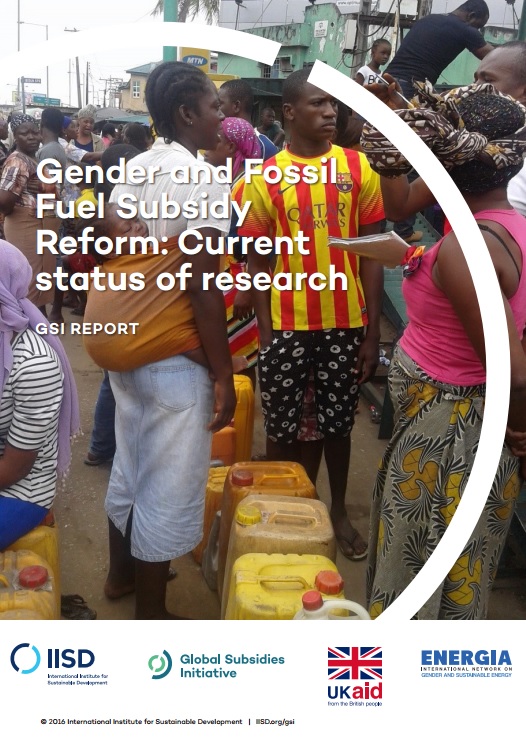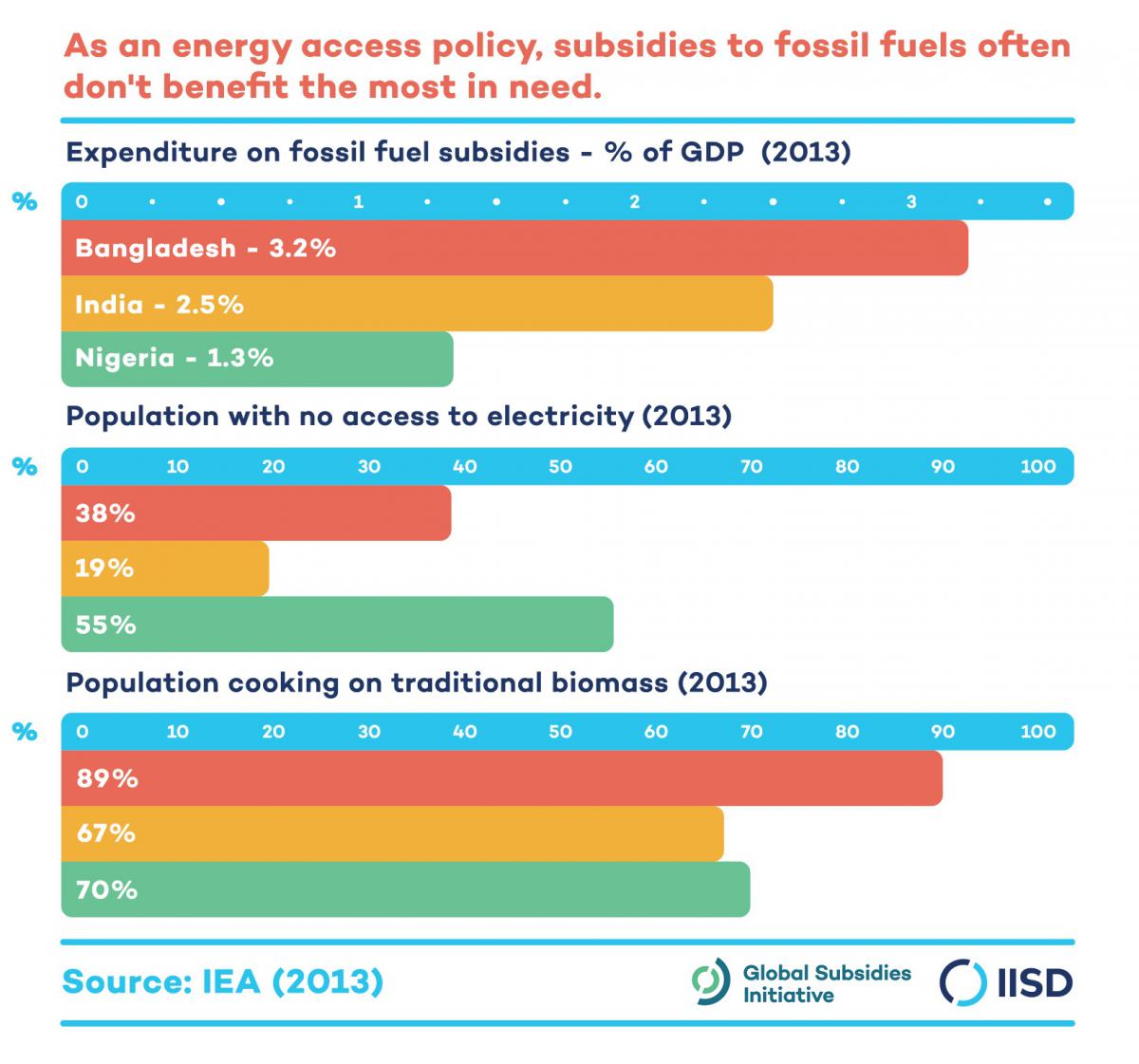Redirection of Fossil Fuel Subsidies Towards Women Holds Huge Opportunity for Sustainable Development
 A new report from IISD's Global Subsidies Initiative (GSI), entitled Gender and Fossil Fuel Subsidy Reform, suggests that the reform of fossil fuel subsidies should focus assistance towards women in poverty.
A new report from IISD's Global Subsidies Initiative (GSI), entitled Gender and Fossil Fuel Subsidy Reform, suggests that the reform of fossil fuel subsidies should focus assistance towards women in poverty.
Currently, global subsidies for the consumption of fossil fuels are at least 12 times larger than the funding needed for universal education (USD 39 billion) or maternal and child health needs (USD 33.3 billion). Globally, governments still spend around USD 500 billion subsidizing fossil fuels to consumers.
However, despite governments spending so much on reducing the price of fossil fuels, many countries still have critically low levels of energy access. This has particular implications for poor women, who are often responsible for securing and using fuel, and whose lives are particularly blighted by a lack of energy supplies. Reforms to fuel pricing policies can therefore also be expected to have a particular effect upon women.
The report is the first output from a four-year collaboration with ENERGIA on gender and energy sector reform, launched in Geneva at the GSI offices in February 2015. Over the course of the next two years, the GSI, together with its partners in Bangladesh, India and Nigeria, will conduct a program of primary research aimed at identifying some of the effects that subsidies and their reform can have for poor women. The report reviews the literature on current energy subsidies, current reforms and any proposed mitigation measures from a gender perspective. It also looks in detail at the possible impacts in Bangladesh, India and Nigeria: two of which (India and Nigeria) have experienced rapid reforms in the last year. The report also provides case studies of energy sector reforms from a gender perspective in Peru, Mexico and Morocco. It found no primary, quantitative research and very little qualitative research on the issue of gender and energy sector reform.
The research also suggests that impacts from energy sector reform and mitigation measures are extremely context-specific. The global literature review across the impacts of energy subsidies, the impacts of energy sector reform and workable or appropriate mitigation measures associated with any reforms from a gender perspective found that outcomes and impacts will vary with time and place. However, it is possible to hypothesize possible impacts upon poor women arising from the presence, reform and redirection of subsidies across the energy sector. These are outlined in a table included in the report.
The research finds that a significant proportion of subsidy benefits are captured by well-off households, suggesting a general phenomenon of energy subsidy inefficiency. Strong evidence indicates that, if the desired policy objective is to target income and energy access benefits to women and men living in poverty, then fossil fuel subsidies are a very inefficient policy. The research covered a broad range of fuel types and potential interventions, investigating these from the perspective of income, energy use and energy supply effects on gender.

The potential for improved targeting of energy subsidies for gender equality is high. The review found that subsidies and their reform do have implications for poor women. The insights into this dynamic, and the potential for improved targeting of energy subsidies, could have significant implications for policy design, gender equality and energy access as outlined within case studies from Peru, Mexico and Morocco. The GSI aims to further investigate these links and opportunities with partners in the context of Bangladesh, India and Nigeria over the coming years.
The study therefore encourages the reform fossil fuel subsidies, but doing so in a strategic way that positively targets poor women with specific policies, for example:
- Introducing, expanding or increasing cash transfers
- Targeting gas and electricity coupons or tariffs
- Overcoming upfront costs to cleaner cooking by providing assets (e.g., clean cookstoves)
- Increasing broader social safety nets targeted at women’s needs (e.g., healthcare and education)
To find out more: Download the report here.
For a brief review of the report: Energia News.
For more information about the report and findings contact Laura Merrill: lmerrill@iisd.org.
